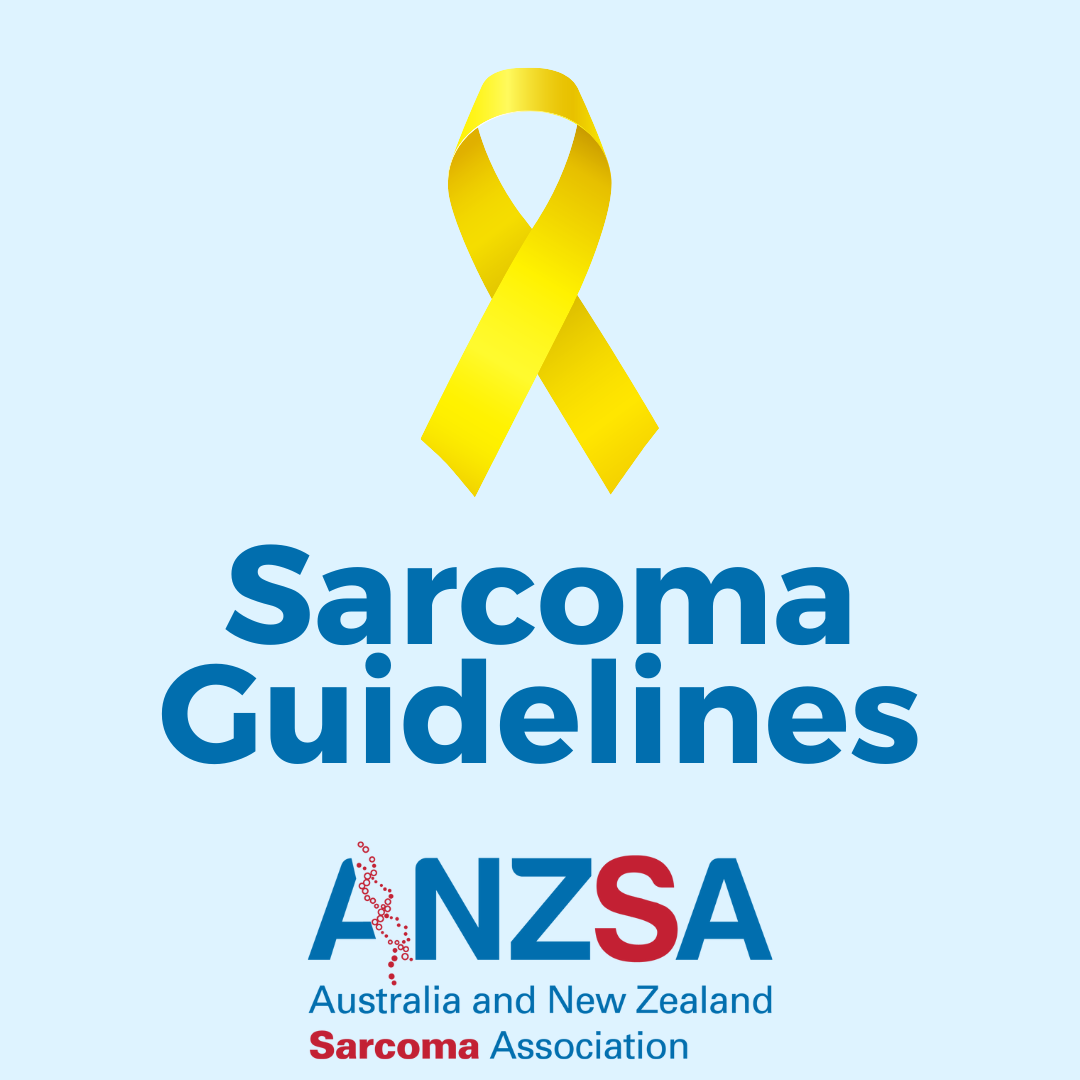The new ANZSA Sarcoma Guidelines

For the past two years, ANZSA has engaged a multidisciplinary working party to perform rigorous review of scientific evidence to develop specific recommendations for different aspects of sarcoma care. The working party consists of independent experts include doctors, and researchers — and consumer representatives — such as patients who have had sarcoma treatment and their carers.
Given the complexity and rarity, sarcoma diagnosis can be difficult. According to radiation oncologist and chair of the ANZSA Sarcoma Guidelines working party Prof. Angela Hong, it can take months before getting the correct diagnosis.
There are major challenges in making the correct diagnosis and treatment. It is not uncommon for patient to come along for a few months before getting the correct diagnosis. Making the correct diagnosis of the specific type of sarcoma is very important as the treatment plan is different for different types of sarcoma. Treatment can be very intensive with the combination of chemotherapy, surgery, radiation therapy with different sequencing which can go on for many months.
As each sarcoma treatment differs between each patient, the working party has worked hard to ensure the guidelines reflect issues that are relevant to patients. From their research, the working party were able to identify three broad topics for the guidelines:
Topic 1: Management at specialised sarcoma centre
Topic 2: Retroperitoneal sarcoma
Topic 3: Paediatric/adolescent young adult (AYA) sarcoma
From these topics, there are three clinical questions that have already been addressed in this series 1 of new guidelines:
Clinical Question 1: Does radiotherapy at a specialised sarcoma centre improve outcomes?
Clinical Question 2: Does surgery at a specialised sarcoma centre improve outcomes?
Clinical Question 3: Does delayed surgical resection of the primary tumour impact on outcome for pelvic Ewing sarcoma?
The development of these guidelines will be ongoing, with new questions and content to be released in the near future. According to paediatric oncologists Dr. Natacha Omer and Dr. Julie Cayrol, development for new clinical questions is already in the works.
The first question to have been addressed in these guidelines is the impact on outcomes of the delayed surgical management of patients with pelvic Ewing sarcoma. Other topics in development include the impact on Ewing sarcoma and rhabdomyosarcoma outcomes of using high-dose chemotherapy with autologous stem cell transplant compared to standard chemotherapy; the impact on outcomes of using local radiotherapy on patients with Ewing sarcomas that have been surgically resected; and the impact on outcomes of treating adults with Ewing sarcoma, rhabdomyosarcoma or osteosarcoma with paediatric standard of care protocols.
Sarcoma accounts for about 20% of cancers diagnosed in childhood, making it one of the most common cancers in children. Dr. Omer and Dr. Cayrol state that these guidelines will help optimise treatment of young patients to help them return to their lives after treatment.
Sarcomas in children and adolescents are rare cancers. However, these unfortunately represent one of the leading causes of cancer-related deaths in adolescent and young adults (AYA). Optimal management can make a difference in survival and functional outcomes for these patients, in other words how well they are able to lead a normal life conserving their function. Standards of care for the management of these diseases are therefore needed in Australia and New Zealand to optimise their management throughout different centres. The national guidelines developed with ANZSA will support physicians managing sarcomas by reviewing the current knowledge and giving recommendations on specific complex aspects of the management of sarcoma.
The content of the guidelines will continue to be updated in accordance to new published research when it becomes available. Further series covering other clinical questions will be released shortly.
Read our new sarcoma guidelines here.

